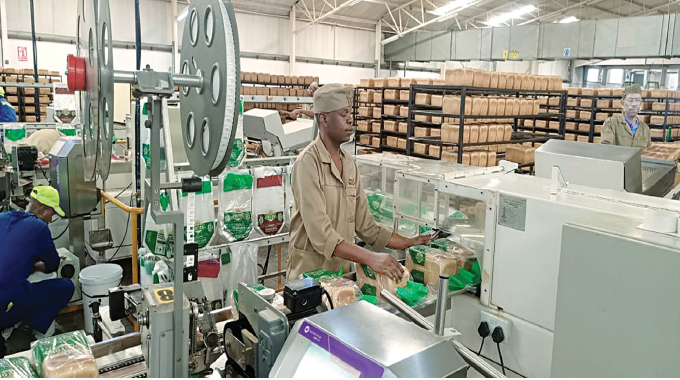Turn wilting crops into fodder — top livestock farmer

Sikhulekelani Moyo, [email protected]
FARMERS have been urged to harvest wilting crops from their fields and produce fodder to feed livestock, a prominent livestock farmer has said.
By producing fodder, farmers are in a position to cushion themselves from buying huge stock of stock feed.
Following the dry spell, which has been prevailing for the past weeks due to the El Nino, crops in most parts of the country have been declared a write-off.
According to the International Research Institute for Climate and Society, the El Nino weather will affect the whole of the Southern Region in what they have called the worst-ever drought.
In an interview, Mr Obert Chinhamo of Biano Simmentals in Esigodini told Business Chronicle that although the dry spell harms pastures, he said farmers stand a chance of salvaging something from harvesting wilted crops and turning them into fodder for their animals.
“A lot of crops are wilting around the country and we have a lot of livestock that may die because of the drought that we are facing. So, as farmers, we may have to make a quick decision, instead of looking at the crop wilting and going to waste, we will rather turn it into silage so that later on during the year, farmers can open their silage and feed their livestock.”
Mr Chinhamo said farmers should seek proper advice when making fodder from dying crops saying that if the crops wilt to a certain stage, there is a danger of getting prussic acid into the feed, which is a poisonous substance that can kill the animals.
He said farmers would rather make the decision quickly when the crop is still looking good.
“The weather forecast is already telling us that we are expecting rains around March 2, so farmers can evaluate their crops and make a decision to make silage and salvage something from there,” he said.
He added, “Farmers must know that whether it’s drought or not, we still need to do a lot of work to keep our animals in good condition throughout winter and we always do field days to try to encourage farmers to do that,” he said.
Beano Farm boasts of being the only farm in the southern part of the country with the rare, yet precious simmental breed, which is known for its high-quality meat and milk.
The breed is also crucial for cross-breeding.
Many families struggle to buy stock feed and usually rely on grazing.
Organisations such as the Zimbabwe Agricultural Growth Programme (ZAGP) have been working with farmers’ groups to enhance resilience through capacity building and knowledge sharing on alternative fodder options.











Comments